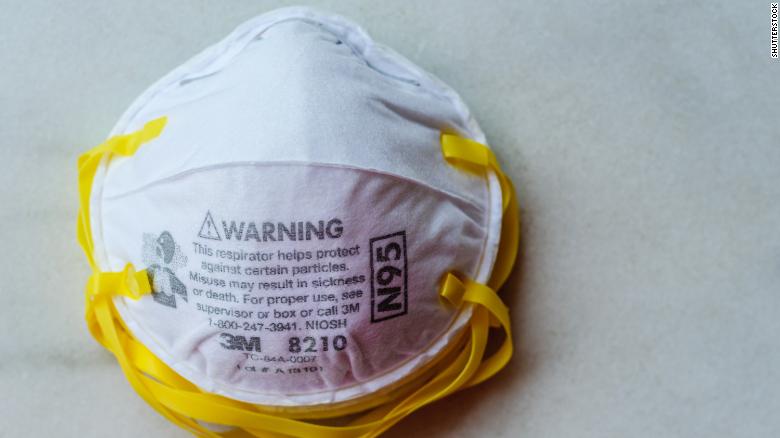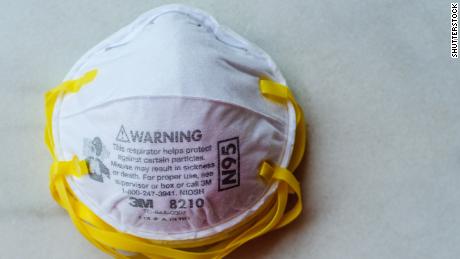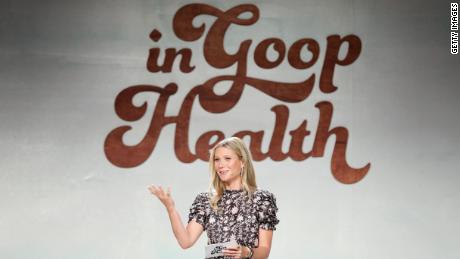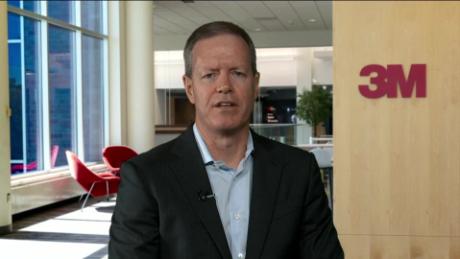New York (CNN)Less than a year ago 3M, a major American multinational in St. Paul, Minnesota, was churning out a bunch of everyday problem-solving products, like Post-its, Scotch tape and ACE elastic bandages.
Then the pandemic hit and consumers got to know 3M for another product that, in just a matter of weeks, had become critical in the fight against the coronavirus: the N95 respirator mask.
3M (MMM) is the world's largest maker of N95 masks. The gold standard of respirator masks, it is seen as one of the best lines of defense for frontline workers -- doctors, nurses, home healthcare, public transportation and grocery store employees -- whose jobs have been deemed essential throughout the pandemic.
As demand surged early on in the pandemic, N95 masks were in short supply around the globe. 3M felt the pressure -- and the backlash, including from president Donald Trump, who requested that 3M cease exporting made-in-the-USA respirators to Canada and Latin America.
But 3M refused the Trump administration's request, noting that there would be "significant humanitarian implications" if it ceased shipping respirator supplies to healthcare workers in other countries.
"We knew we would have to step up in delivering additional N95s to ramp up our capacity. It's something we learned back with SARS more than a decade ago that we were going to be looked to for leadership," 3M CEO Mike Roman told CNN's Poppy Harlow in a recent Boss Files interview.
"And so we invested in capacity to have it ready for the next emergency, the next pandemic. And so, that was already part of our playbook." said Roman.
What also incited 3M to start revving up N95 production early on in January was an urgent call to action from an epidemiologist at the University of Minnesota, who warned that Covid-19 had the potential to quickly become a global pandemic.
"I think it was a very serious moment for us, a big responsibility, but something that we were ready for," said Roman.
By March, as coronavirus cases surged, 3M had doubled N95 mask production. It then doubled it again. Today, the company is on track to produce 95 million masks a month and a billion in total by the end of the year.
"That was a stepping up of where we started the year," said Roman.
Still, it may not be enough, he acknowledged. "Even today, the demand for N95s is greater than not only our production capacity, but the entire industry," said Roman.
As 3M continues to ease the capacity crunch for masks, Roman said the company is forging ahead to explore and produce other kinds of solutions.
One is a rapid diagnostic test for Covid-19 that 3M is developing in partnership with Massachusetts Institute of Technology that can deliver results in a matter of minutes.
"It's one of those areas that came out of attacking the pandemic from every angle," said Roman, adding that it still could be a while before consumers are able to reap the benefit of a rapid test.
"We're right in the middle of really developing the accurate test. We need to take a couple more steps before we can put a timeline out there," he said.
As 3M races against the clock, Roman said the pandemic has surfaced challenges, some of which he wasn't expecting.
The overwhelming demand for N95 masks, for example, resulted in counterfeits leaking into the supply chain. The Centers for Disease Control and Prevention (CDC) warned in April that fake or substandard masks could compromise the safety of anyone who uses them, including healthcare providers.
3M over the past few months has investigated as many as 6,300 cases of mask fraud and has been working with large online sellers and federal and state authorities to identify and remove counterfeiters.
"We had to step in and help fight that. It wasn't something we had envisioned at that scale," Roman told Harlow.
Call to action in 3M's hometown
As 3M rushes to address the demand for its products that has resulted from the coronavirus, the company has borne witness to a scourge of a different kind in its own backyard.
"The killing of George Floyd hit us all hard," said Roman. "It hit 3M'ers, it hit our African-American community especially hard. For me, it was a call to action and I really do believe companies and company leaders can and need to make a difference."
Floyd, an unarmed and handcuffed Black man, died May 25 in Minneapolis after former officer Derek Chauvin used his leg to pin Floyd's neck to the ground for nearly nine minutes. Floyd's death sparked protests and rallies across the country and reignited a national conversation about race, police brutality and social injustice.
For 3M, too, it was a moment to reflect on the level of diversity and inclusion at the company.
3M's 13-member leadership team does not include any Black executive and only two of its 11 board members are Black.
In July, 3M hired Garfield Bowen, its first ever director of social justice strategy and initiatives. The company said the role was created to help empower underrepresented groups and promote diversity -- both inside and outside of 3M.
3M this week also announced it was investing $50 million over the next five years to address racial opportunity gaps through workforce development initiatives.
These include efforts to accelerate representation of Black and Hispanic/Latino employees across its workforce and train 3M leadership in racial inclusion advocacy.
"When I talk about acting and making a difference this time, it's really empowering diversity, equity and inclusion inside of 3M and outside," said Roman. "And we have to make sure we're doing both in order to really step up and take the leadership responsibility that we have. So these are areas that we have to listen, understand and then take new actions to drive that idea that there's much more to do. And we need to do it."























